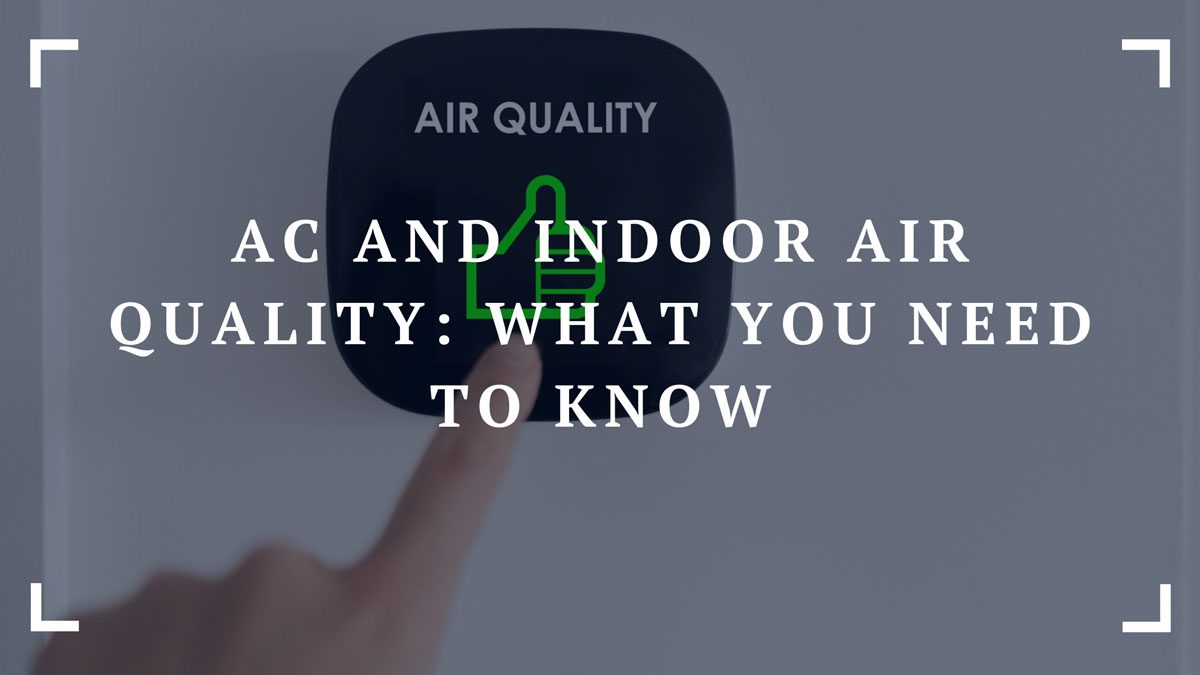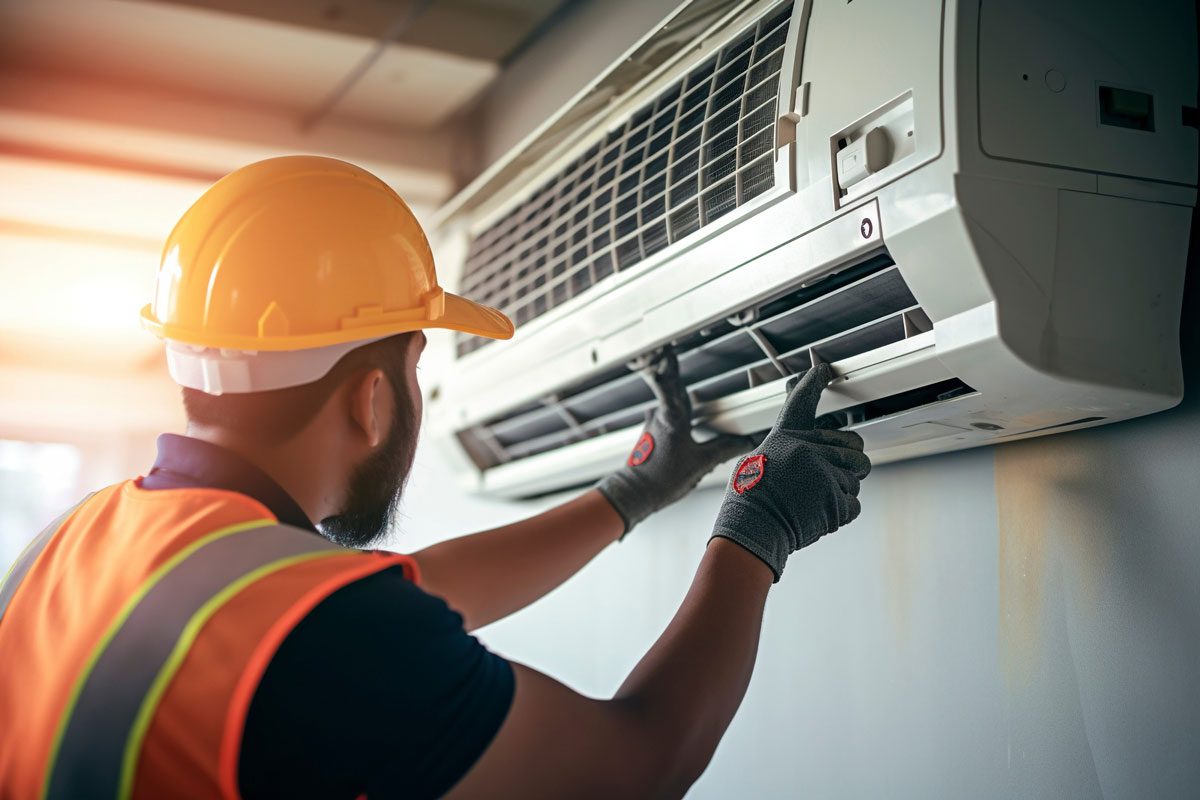In today’s fast-paced world, you often seek solace in the comfort of your own home, where the air is cool and refreshing. But have you ever stopped to consider what lurks beyond that comforting breeze from your air conditioner?
The quality of air in your living spaces is intricately tied to your AC system, a fact that’s easily overlooked amidst daily routines. As it helps you escape the heat, it’s vital to understand its role in cooling your home and safeguarding the air you breathe.
This guide will unravel the unseen connection between your AC and indoor air quality, arming you with the knowledge to ensure your home remains a haven of comfort and health. Let’s dive into AC systems, where the air is more than just a cool relief.

How Your AC Influences Indoor Air Quality
Primarily, an AC unit regulates the temperature, ensuring your comfort. However, it also significantly influences the air you breathe indoors.
A well-functioning AC system circulates and filters the air. It effectively removes pollutants and allergens present in the air. This process is crucial for maintaining a healthy environment within your home.
On the flip side, a poorly maintained AC can contaminate air by circulating unfiltered and potentially harmful air. Therefore, the state of your AC directly affects the quality of your indoor air, playing a key role in your overall health and well-being.
The Importance Of Regular AC Maintenance
Regular maintenance of your AC system is crucial in preserving indoor air quality. Over time, filters can become clogged with dust, pet dander, and other pollutants, reducing the system’s efficiency and circulating contaminated air.
By routinely replacing or cleaning the AC filters, you ensure that the air in your home remains clean. Furthermore, regular maintenance checks can identify and fix any issues affecting air quality, such as mold growth within the unit.
Choosing The Right AC System For Optimal Air Quality
When considering AC installation Tucson, it’s essential to select the right system for your home. Start by assessing your home’s size and layout, as this will guide you in choosing a unit with the appropriate capacity.
Then, pick a system that incorporates advanced filtration technologies, such as HEPA filters, which are adept at trapping fine particles and allergens. Also, consider models with humidity control features to maintain a balanced indoor atmosphere, preventing mold growth.
Consulting with a professional can help you choose an AC system that suits your needs and improves indoor air quality.
Impact Of Poor Indoor Air Quality
When the air in your home is contaminated with pollutants, it can exacerbate allergies and respiratory conditions such as asthma.
Continuous exposure to poor air can lead to more severe health issues, including respiratory infections and chronic lung diseases. This is particularly troubling considering the amount of time you spend indoors.
The presence of airborne irritants and allergens in your living space demands your attention. It’s crucial to recognize the invisible risks that poor air quality poses and take proactive measures to ensure the air in your home remains safe for you and your family.
Tips For Improving Indoor Air Quality With Your AC

There are several ways to enhance the indoor air quality using your AC system:
- Regular Filter Changes: Ensure you replace or clean your AC filters regularly. This is a simple yet effective way to maintain good air quality.
- Use High-Efficiency Filters: Consider using high-efficiency particulate air (HEPA) filters in your AC system. These filters are more effective in trapping small particles.
- Regular Maintenance: Schedule regular maintenance checks with a professional to keep your AC system in optimal condition.
- Proper Ventilation: While using AC, it’s important to ensure your home is still adequately ventilated. Occasionally opening windows or using exhaust fans can help circulate fresh air.
By adopting these practices, you’ll significantly improve the air quality in your home.
Understanding The Role Of Humidity In Indoor Air Quality
Excessive humidity fosters mold and mildew growth, which can aggravate allergies and respiratory issues. Conversely, too little moisture leads to dry air, potentially causing discomfort in your respiratory system and skin.
Your AC system is instrumental in regulating these humidity levels, maintaining a balance that is comfortable and conducive to a healthy indoor environment. By monitoring and adjusting the humidity in your home, you’re taking a significant step towards ensuring a safer and more pleasant living space.
Final Thoughts
Your AC system is a significant player in maintaining indoor air quality. Regular maintenance, proper use, and understanding the factors affecting air quality can help create a healthier living environment. Remember, your AC does more than cool your home; it is vital in keeping the air you breathe clean and safe.


